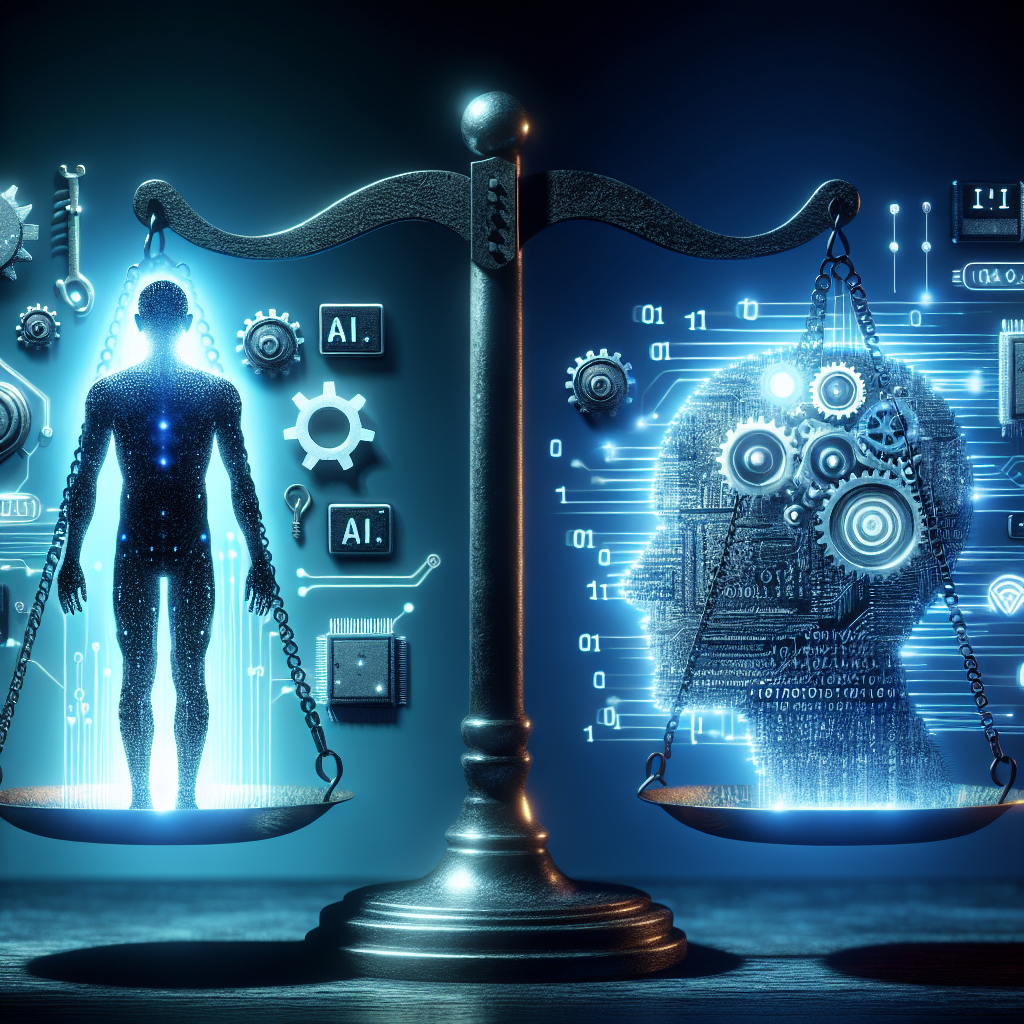Artificial intelligence (AI) has revolutionized many industries, including social services. From predictive analytics to chatbots, AI has the potential to enhance the efficiency and effectiveness of social services. However, along with these benefits come significant risks and concerns that need to be addressed to ensure the responsible use of AI in this sector.
One of the primary risks of AI in social services is bias. AI systems are only as good as the data they are trained on, and if that data is biased, the AI system will perpetuate that bias. For example, if an AI system is used to predict which individuals are most at risk of child abuse, but the data used to train the system is biased against certain demographic groups, the system may unfairly target those groups for intervention. This can have serious consequences for the individuals involved and perpetuate existing inequalities in the social services system.
Another risk of AI in social services is the potential for loss of human oversight and accountability. AI systems are often complex and opaque, making it difficult for humans to understand how they arrive at their decisions. This can make it challenging to hold AI systems accountable for their actions, especially in cases where those actions have negative consequences for individuals or communities. Additionally, the reliance on AI systems in social services may lead to a reduction in human interaction and empathy, which are crucial components of effective social work.
Privacy concerns are also a significant risk of AI in social services. AI systems often collect and analyze vast amounts of personal data in order to make predictions and decisions. This raises concerns about the security and confidentiality of that data, as well as the potential for misuse or unauthorized access. Individuals may be hesitant to seek help from social services if they are concerned about the privacy implications of interacting with AI systems, leading to a decrease in the effectiveness of these services.
There are also concerns about the potential for AI systems to make errors or incorrect decisions. AI systems are not infallible and can make mistakes, especially in complex and nuanced social services contexts. These errors can have serious consequences for individuals and communities, leading to mistrust in the social services system and potentially harming those who are most in need of support.
Furthermore, there is a risk that AI systems in social services may exacerbate existing power imbalances. AI systems are often developed and controlled by large technology companies or government agencies, giving them significant influence over the design and implementation of social services programs. This can lead to a lack of transparency and accountability in decision-making processes, as well as a concentration of power in the hands of a few entities. This can further marginalize vulnerable populations and limit their ability to access and benefit from social services.
Despite these risks and concerns, there are steps that can be taken to mitigate the potential dangers of AI in social services. One approach is to prioritize transparency and accountability in the design and implementation of AI systems. This includes ensuring that AI systems are developed in a way that is understandable and explainable to human users, as well as establishing mechanisms for oversight and review of AI decisions. Additionally, it is important to prioritize diversity and inclusion in the development of AI systems, to ensure that they do not perpetuate biases or inequalities.
It is also crucial to prioritize the ethical use of AI in social services. This includes establishing clear guidelines and principles for the responsible use of AI systems, as well as ensuring that individuals have the right to opt out of interacting with AI systems if they have concerns about privacy or bias. Additionally, it is important to invest in ongoing training and support for social services professionals to ensure that they are equipped to use AI systems ethically and effectively.
In conclusion, while AI has the potential to enhance the efficiency and effectiveness of social services, it also poses significant risks and concerns that need to be addressed. By prioritizing transparency, accountability, diversity, and ethics in the design and implementation of AI systems, we can ensure that AI is used responsibly in social services and that it benefits those who are most in need of support.
FAQs:
Q: Can AI completely replace human social workers?
A: While AI has the potential to enhance the work of social workers, it is unlikely to completely replace human social workers. Human empathy, understanding, and decision-making abilities are crucial components of effective social work that cannot be replicated by AI.
Q: How can AI systems be held accountable for their decisions?
A: Accountability for AI systems can be achieved through transparency in the design and implementation of AI systems, as well as mechanisms for oversight and review of AI decisions. Establishing clear guidelines and principles for the responsible use of AI can also help ensure accountability.
Q: What steps can be taken to mitigate bias in AI systems?
A: To mitigate bias in AI systems, it is important to prioritize diversity and inclusion in the development of AI systems, as well as to regularly audit and review AI systems for bias. Additionally, establishing mechanisms for oversight and review of AI decisions can help identify and address bias.
Q: How can individuals protect their privacy when interacting with AI systems in social services?
A: Individuals can protect their privacy when interacting with AI systems in social services by being informed about the data that is collected and how it is used, as well as by exercising their right to opt out of interacting with AI systems if they have concerns about privacy. Additionally, organizations can implement strong data security measures to protect the confidentiality of personal data.

